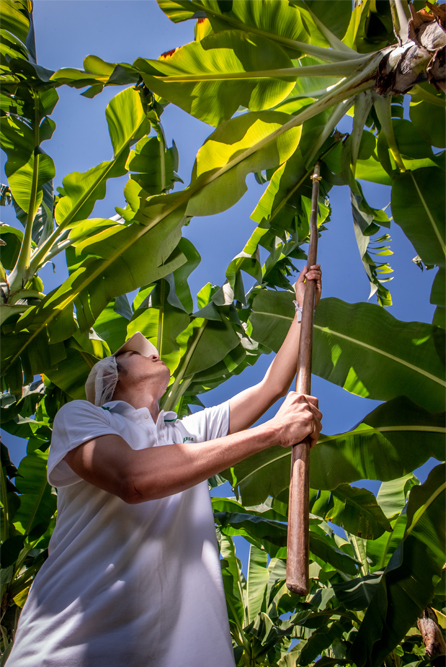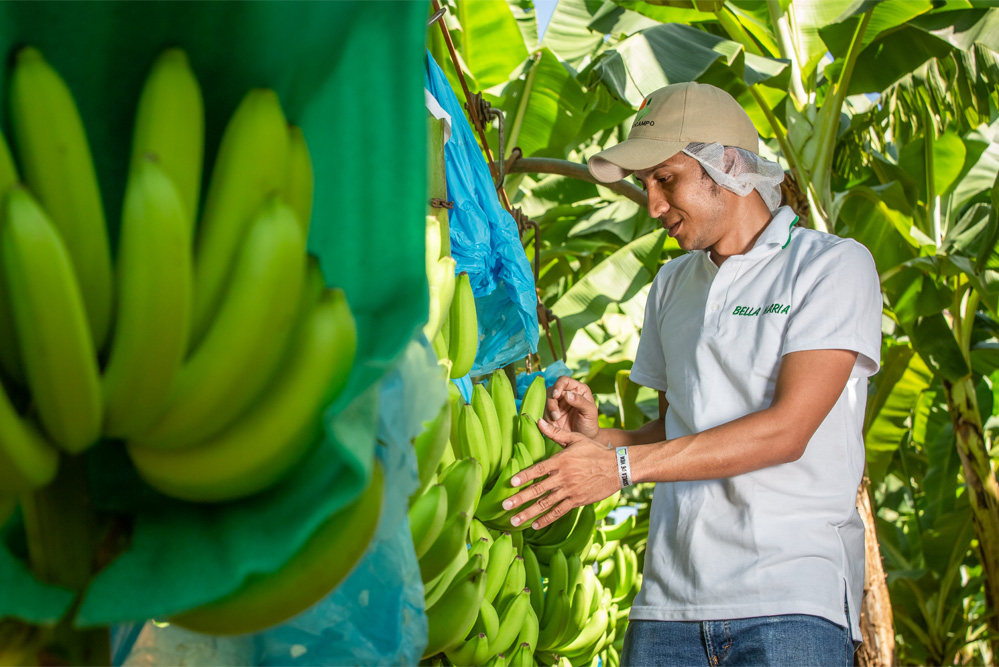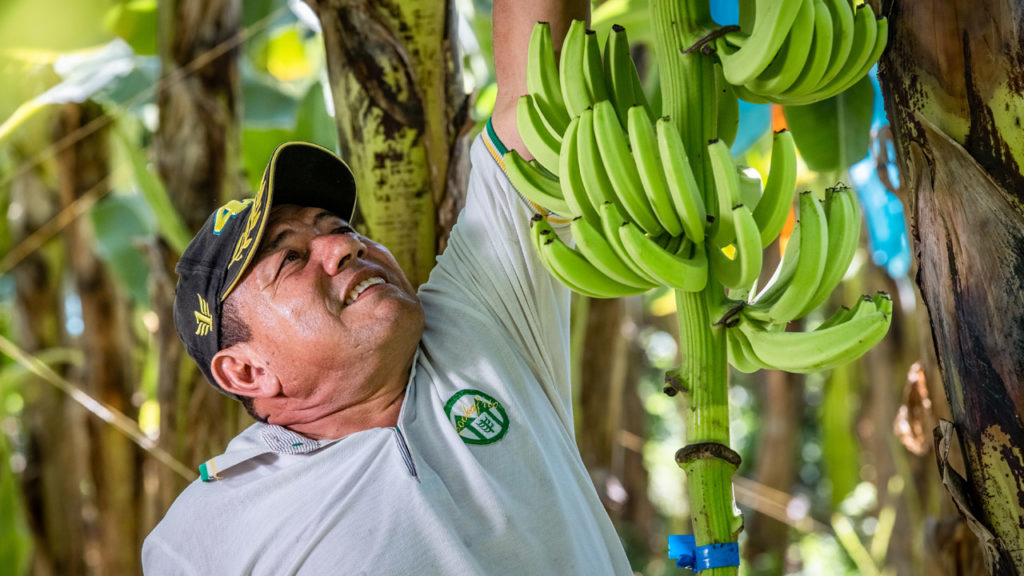by Anna Pierides, Fairtrade’s Senior Supply Chain and Programme Manager
Nearly a year ago, the reality of Covid-19 hit home when the UK went into its first lockdown. Bags of flour and sugar flew off supermarket shelves and banana bread baking became a national coping strategy, taking over our social media feeds. A year on, the pandemic continues to highlight more than ever just how inter-dependent our world is: behind every Instagram post of a delicious looking banana loaf was the story of a farmer thousands of miles away, struggling to make ends meet.
Whilst banana farmers have continued producing our favourite Fairtrade fruit throughout the pandemic, these difficult times over the past year have simply aggravated the challenges they face from a longer-running crisis: the climate emergency. The Covid-19 crisis has created additional difficulties and devastation, but for years banana producers have been telling us that climate change is their biggest challenge: it’s left them facing unpredictable weather patterns, rising temperatures, hurricanes, droughts and floods. Climate change is a daily reality for these farmers and their communities. They are at the frontline of the fight against the climate crisis.
So it is appropriate that this year’s Fairtrade Fortnight campaign has focussed on how the climate crisis poses a significant threat to our food and to the people who grow it.

How Fairtrade is making a difference
Fairtrade is a lifeline for banana farmers, helping them mitigate and adapt to the effects of climate change. The Fairtrade Minimum Price is a safety net that enables them to cover their cost of production, which is being increasingly put under pressure with the ever-changing environmental context. Fairtrade Premium – the additional sum of money that Fairtrade certified farms receive to invest in improving their businesses and communities – is a crucial resource for farmers to spend on projects such as reforestation, crop diversification, irrigation, crop cover and clean energy. Projects like these are hugely valuable, enabling farmers to become more climate resilient.
Fairtrade’s producer network group CLAC, which represents banana farmers in Central and Latin American and the Caribbean, works closely with farmers to train them on climate-friendly farming and best agricultural practices. Environmental protection is engrained in Fairtrade Standards, which encourage and support banana farmers to eradicate their use of pesticides and to increase the biodiversity on their farms. These activities help to improve soil health and enable it to build up its natural immunity against diseases that can have devastating effects on banana plants, and which are spreading faster due to climate change.
Retailer commitment to Fairtrade bananas
Being able to sell bananas on Fairtrade terms is vital if banana farmers are to continue planning for their futures and protecting their livelihoods. That is why long-term commitments to Fairtrade sourcing by retailers like Co-op, Sainsbury’s, Ocado and Waitrose, have been crucial in enabling farmers to continue to rise up against climate change.
Sainsbury’s banana range is 100% Fairtrade certified, and globally they are the largest retailer of Fairtrade bananas: approximately one in four Fairtrade bananas in the UK is sold in a Sainsbury’s store. In 2020, Sainsbury’s sales of Fairtrade bananas generated over £4 million in Fairtrade Premium. These Premium funds contributed to the climate adaptation and mitigation projects farmers put in place and was also spent on other areas, including the provision of agricultural tools, improvements to infrastructure, health services, and education resources for farmers, their families and their communities.
Thanks to such long-term commitment to Fairtrade sourcing by Sainsbury’s, there is a future in banana farming for young banana farmers like Ovidio Barros. Ovidio is a farming technologist from the Santa Marta banana-growing region in Colombia, and a member of the Fairtrade certified smallholder co-operative Emprebancoop, which is in Sainsbury’s supply chain. Ovidio gained his qualifications in technical agronomy as a result of the Fairtrade Premium, which funded his school and higher education.

Ovidio now sees banana farming as a viable business, offering a secure future thanks to Fairtrade. Ovidio finds it hard to recall what life was like before Fairtrade. ‘I can’t imagine the small producers without it now,’ he says. ‘The economy for small producers grew through Fairtrade. Not just economically but intellectually too.’ This valued commitment from 100% Fairtrade banana retailers means people like Ovidio can earn a better living from banana farming. It also means smallholder farmers have a fighting chance at sustaining their incomes and livelihoods in the context of an ever-changing, ever-challenging world.
This Fairtrade Fortnight, which runs until 7 March, marks the start of a new climate campaign, asking the British public to get behind Fairtrade so that farmers overseas can benefit from fairer prices and the resources needed for tackling the climate emergency. To bring this to life, Fairtrade’s Choose the World You Want Festival has featured a series of virtual events, engaging and inspiring audiences to take action. Our Foodie tent has plenty of Fairtrade recipes, so when you’re next baking a banana cake, do be sure to visit a retailer stocking Fairtrade bananas.
To find out more, visit the Foodie Tent
